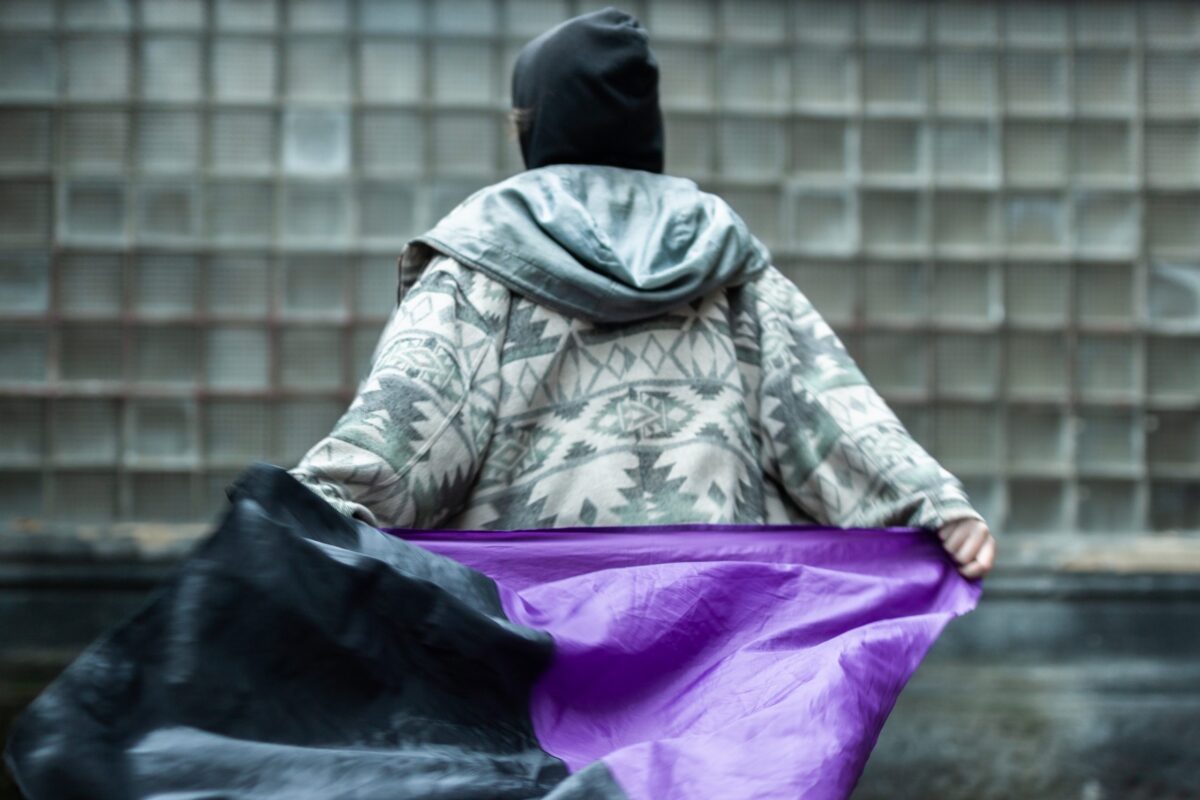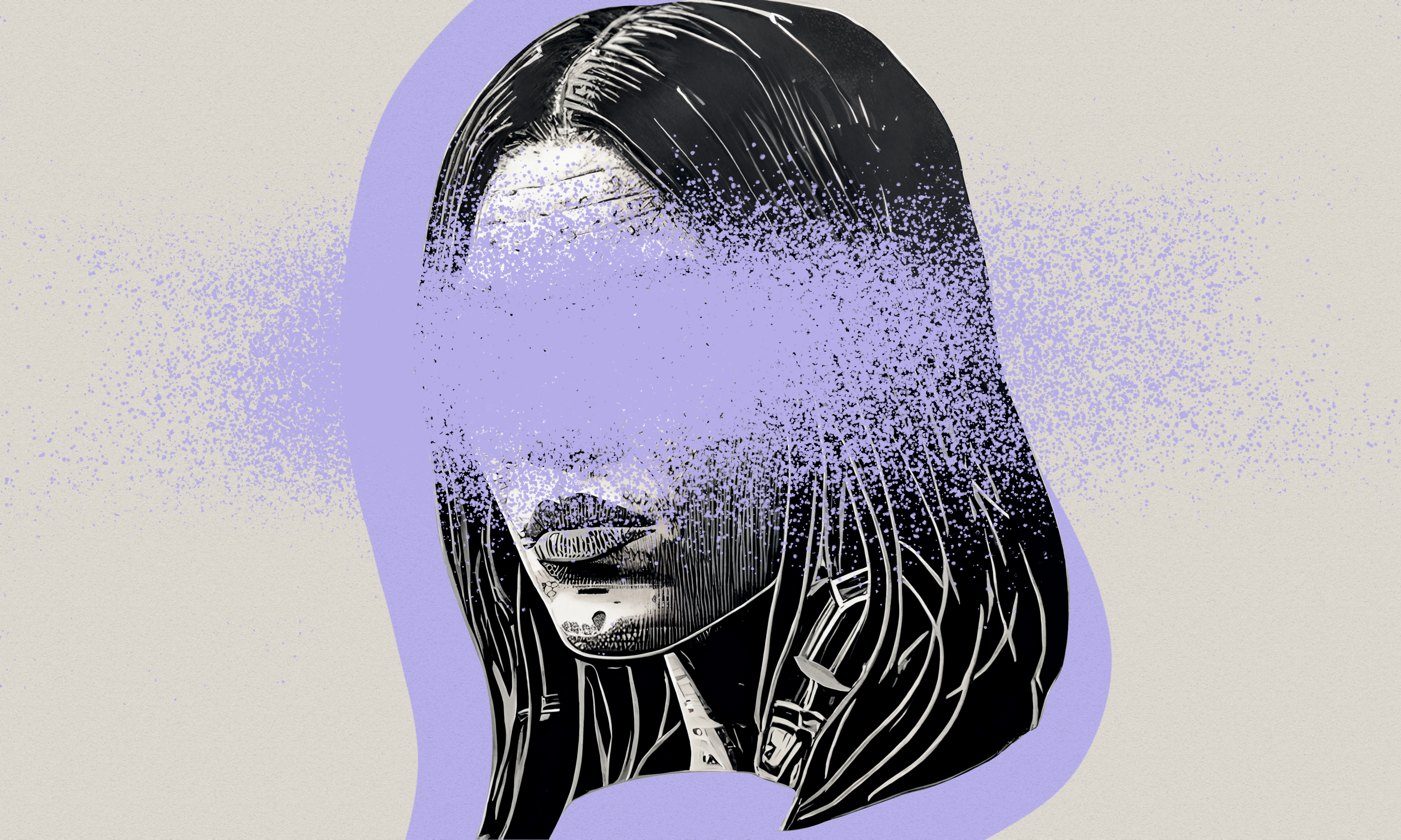To Jest Wojna
Solidarity action with Polish women in Kyiv
16 November 2020
Editor: Bozhena Makovska
Photographer: Michael Tulsky
Translator: Maryna Isaieva
On October 22, the Polish Constitutional Tribunal ruled that abortions for fetal abnormalities violate the country’s Constitution, effectively imposing a near-total ban as 1,074 of 1,100 abortions performed last year in Poland resulted from fetal abnormalities. Therefore abortion will be legal only in case of a threat to a woman’s life and health, rape, or incest. However, pro-life activists have declared already that they will push for a complete ban on abortions, even in these cases. Thousands of people took to the streets of different cities to protest against the decision and the current government’s policy, the most restrictive abortion policy in Europe. The protests have taken place every day since then.
On October 26, activists of Kyiv, Kharkiv, Lviv, and Mariupol took part in actions of solidarity with Polish women. We have collected the reflections of Kyiv action participants in this article.

Anastasia, she/her
As soon as I read about the abortion ban in Poland, I texted my comrades in a chat: “We have to go to the action.” Although abortion has been banned in Poland since 1993, this time, it just got even more absurd. This is an ideological battle against women’s rights. That is why Polish women and gender-variant people should be provided with information and moral support, and that is what we can do. Online protesting in the pandemic present is also an option, but it rarely goes beyond the social media ‘bubble’. Ukrainian and international media wrote about our action in front of the embassy. Thanks to this, Polish activists noticed that we support them and that they are not alone in this struggle. When I learned that the right-wing radicals were planning to come there earlier and take place under the embassy, I was very worried and angry. I already had an experience of appealing to the police to ensure the safety of activists at feminist events, so I talked to law enforcement officers all morning that day. We were offered to stand on the other side of the street, but I am glad that the action still took place. It expressed solidarity not only with Polish activists but also with women in Ukraine and everywhere. As the war for the female body is not over, rights are not given — they are taken.

Brie, she/her
This is not my first action related to abortion bans in Poland. In 2016, there was an action of solidarity with the ‘black protest’ (Czarny protest) — one of the first experiences of feminist actions in Ukraine for me, not counting March 8. My motivation to participate now, as then, is that I am convinced that a woman* has the right to decide for herself what to do with her life and her body. No state apparatus should take away this right from her. All these deputies, at the behest of whom was initiated the review of the act as inappropriate, care about anything, but the health and general well-being of women.
I was feeling anxious while speaking into a megaphone in public. It was even more unsettling to see people who repeatedly attacked my friends. Nevertheless, as long as I stand with my comrades and speak, I am not afraid, and I will not be afraid. My theses from the speech can be briefly described as follows: I am FOR choice, FOR sexual education, FOR affordable contraception, FOR affordable and safe medicine, FOR effective social policy, FOR absence of stigmatization, and AGAINST any violence.
Our main goal was to support Polish women who found themselves in a situation of impossibility to control their own bodies. However, it was also important for me to speak there to remind: there are deputies, activists, religious organizations in Ukraine that are ready to ban abortions as well.

Marta, she/her
My sisters live in Poland, so when I found out what was going on, I felt terrified. I think that the protests will slow down these processes but will not affect the ban. Then I recalled how recently the Verkhovna Rada also had tried to push through an abortion ban bill. They failed, but I am as well not very optimistic on that matter: I think that at some time, this issue will be raised again. I was furious, felt a lot of aggression. I wanted to punish someone for these actions rather than go to some rally. Rationally, I realized that I needed to go out, but I didn’t have the strength. I’ve been looking for a job for some time already, this process has dragged a bit, and I don’t like it. I decided that I would at least help draw posters, thus support my sisters who are going to the protests in Krakow, and I will be useful for the protest in general. I drew two posters: “I will give birth to a leftist” in Polish and “Abortion is my business.” I saw the first slogan on my sister’s Instagram. I liked it because it’s a pretty desperate exclamation, like, do you want me to give birth? Then the people I give birth to will arrange a coup here.
Eventually, I came to the action, and it lifted my spirits that day. I was in a state of euphoria, after which, of course, there was exhaustion. It was the same on March 8, when I slept all day after the march. I accumulate all my strength and give it to protest, but I do not feel that I can make an impact or take it away from those who have it now. I just do it because I can’t do otherwise; I have no choice.

Yuliia, she/her
I have not taken part in any actions for a long time due to quarantine and some other conventions, including the fact that I always try to figure out what action I am going to, who is it supported by, what I stand for. So, usually, I want to delve into all the intricacies of the particular rally’s agenda. Although the situation with abortion bans in Poland seemed to me quite clear, it was so unacceptable that all the other details were not important. I wrote to my friend, Yasya, with an offer to meet to draw posters for the action, to express both solidarity and protest at the same time.
We bought two posters — red and black, firstly for aesthetic reasons, and secondly — for ideological (colours of anarchism). Going forward, I should say that I was later amused and struck by the fact that some representatives of the right-wing movement considered the message of our posters as “an insult to the red and black colour combination of Ukrainian nationalism”. Assigning such a common colour scheme to a particular movement is wildly amusing, in my opinion. Maybe Stendhal was also a Ukrainian nationalist?
We did not want to repeat the obvious populist slogans and came to the conclusion that in this situation, the principle ‘rights are not asked, they are taken’ applies. What is the point of tiptoeing around people who deprive you of subjectivity, deprive you of basic human rights, and try to convince them on a logical, rational level? They are not worthy of it. It’s like proving to the attacker that you are also a person, and in general, violence is bad. In the process of coming up with different phrases, I said, “I don’t want to complicate things, I just want to express how I feel about it, and that fits in with the words ‘RED IS GO FUCK YOURSELF,’ and Yasya supported my idea, adding, ‘Ah.’ BLACK IS ALSO GO FUCK YOURSELF.”
Despite the obvious provocation, rudeness, and simplistic interpretation of our statement by some people, I am very pleased with what and how we said it. We have to stop begging for rights that should be already ours. It’s time to start talking to ignorant people in their language.

Yasya, she/her
At the action, there were many messages and posters in Polish, including chants that hardly anyone of those present understood. That’s good, and I see why it is so, but there is a nuance. In our own country, the Council of Churches is constantly trying to get into the womb. I went to the action not only to express my support for the striking women in Poland but also to show with my presence that I would defend the right to abortion in Ukraine. I went out for myself in the first place, if you will. Therefore, I would like more activists to be guided by their interests rather than principles of abstract philanthropy and empathy, which they often forget to apply to themselves.
I get quite upset when someone starts explaining to opponents of abortion the consequences of the prohibitionist abortion policy, cites statistics, appeals for sympathy. We talk to them as if we need some weighty arguments, just to live as we consider to be right, just to control our bodies. It is prohibitively impudent. I’m not going to make excuses for my body´s autonomy or arguing politely that the abortion ban will not reduce the number of abortions. I do not live to increase demography or generally to increase the efficiency of anything. I refuse to recognize myself as an instrument in the hands of a state, a deity, or a man. I refuse to waste my time convincing those who think otherwise. My rights are not arguable.

Doky, she/they
I wasn’t even questioning myself: “Is it worth going to the action of solidarity with the women of Poland?” It was something obvious. Solidarity with other marginalized groups is one of the fundamental ingredients of activism for me. This is not about ‘we have to speak out when they are the ones who the government comes for, because we can be the next.’ I think we should solidarise because the freedom of each and every one is inviolable, and not because we are afraid for the future of our freedom.
Choosing a text for a poster is always a pretty difficult decision for me. Every time I think of what to write, I worry that the slogan will turn out to be too harsh, defiant, or (oh, God!) offensive. So, every time I need to remind myself that my protest should not be ‘convenient’, that the revolution does not work that way. The invented slogan (When the government decides to ban safe abortions, women may decide to abort the government) initially seemed to me more like a cool wordplay than a real political statement. However, after the action, my friend noted that the poster had been photographed a lot, because “it sounded like a direct threat.”
Next, after the activists speak out on the neighbouring state’s issue, there will be those who would like to assault them. Although after reaching this level of absurdity, I can no longer take our ‘opponents’ seriously. Well, really, how can you consider the guys who went out, obviously, to play crusaders and shout ‘Deus vult’ to be genuine activists?

Liza, she/her
After hearing the news from Poland, I was complaining to my friend for an hour: “How can this happen in the 21st century?” As a sociologist, I can give some theoretical explanations, but I am very outraged when it comes to feelings. At the times of Neuralink and the developing social theories, women* (by the general term “women”, I mean the diversity of identities and experiences) are still treated as objects, not people. For me, the issue of abortion is about power and control. In trying to control women’s bodies, the state not only reproduces and produces unequal treatment of women but also violates their rights. I feel a sense of solidarity with Polish women. We have different historical and cultural experiences, but structural gender inequalities are definitely what unites us.
When I was getting ready for the action, I noticed that I worried a lot: what to wear, who to go with, and how to protect myself. During the action itself, I felt joy: it was crucial for me to be there among people who share my values. Although apart from that, I was angry because the police guarded us (activists), and the guys on the other side were absolutely calm. Later, I wrote a post on Instagram about my impressions and received something like threats from them. It is normal to have different views and discuss them, but it is absolutely unacceptable when one group endangers the others. It is also about the unequal distribution of power and authority. This situation depicts how dangerous it is to be a woman. You have to constantly think about your own safety — on the way home or to peaceful action.

Nata, she/her
I think what happened at the action on Monday is a symptom of the situation in general and, at the same time, a miniature of it. Under the pretext of protecting children or women (from themselves), the conservative part of society does everything not to give us informational, cultural, physical space. Therefore, we do not hold the action where we want, which is in front of the embassy, but anywhere we can — across the road, in a close circle of police and the National Guard. First, we are pushed to the wayside, then accused of marginality and finally persecuted. As a result, now we go to the subway accompanied by dozens of National Guards, we go there, even though we don’t need to because each of us knows what is the exchange rate of traditional values to the chances to be beaten in some gateway.
Although the dialogue is impossible and appealing to any arguments doesn’t have sense, the fact of helding an action counter to the ‘guys on the other side of the street’ automatically makes us engage in dialogue. Our answer is a radical one (for what it’s worth a short video where one side of the street is screaming “abortion is a murder”, and the other — “abortion is a right”). We claim our right to public space, our bodies, our own subjectivity — all these things go hand in hand, and I see in it first of all a space for solidarity. When the state, the church, that guy in the old-fashioned coat are interested in my body, all I’m left to do is unite with others — in neighbour’s chats, women’s self-defence grassroots initiatives, on anonymous forums and non-anonymous social networks. And this will always be international solidarity, now with comrades in Poland.
Kateryna, she/her
Apparently, visibility is the key word to explain why it is important for me to participate in feminist projects and actions. The visibility of the problems faced by women and the visibility of the different positions and approaches that can solve them. Grassroots actions give me a sense of notional community, perhaps short-term and heterogeneous in many aspects, but united by a common goal and values. This event was probably the most disturbing of all those that I attended. There is a distinct impression that we came out not only to show solidarity with the Poles but also to remind the Ukrainian authorities of our right to control our bodies. The slogan of women’s protests in Poland, ‘To jest Wojna” (This is War), evokes very strong emotions in me. It reminds us that women, nonbinary and trans people will defend the freedom to choose, not to sacrifice physical and mental health for the sake of someone’s ideas of morality.


